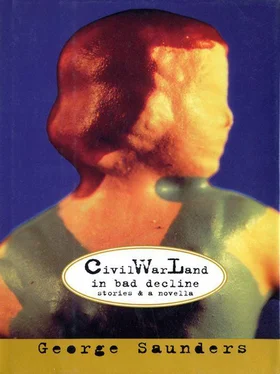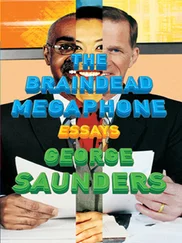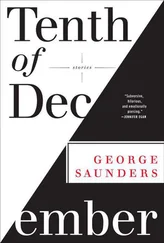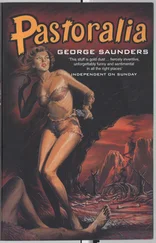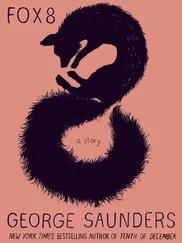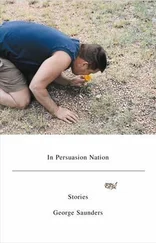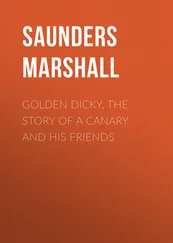We try to go through our regular Counseling agenda. We talk about ways in which we feel neglected or trampled underfoot. We pair off and exchange neckrubs while praising one another for being so unique. Then Father leads us in cheerful songs from musicals. But nobody can concentrate. Finally he gives in and turns on the news: Poll riots in Cleveland and three Flaweds lynched outside Topeka. The early returns are discouraging. The Western vote will decide it. Out there genetic purity is highly valued and Flaweds are generally considered subhuman trash, so things look bleak.
Father gathers us around him in a circle and encourages us to visualize losing so that when we actually do it won’t hurt so much. Then he chucks each of us on the temple and says he’s proud of our restraint.
By midnight it’s clear we’ve lost. In spite of our Preemptive Visualization we’re devastated. Beatrice Connally falls on the floor weeping. She’s forty-two and sees the vote as a death knell for her baby hopes. Her wig goes askew and we can all see her huge scalp veins.
Father climbs up on a folding chair and gives us his The World Has Changed But Not Christ speech. He reminds us that what tortures us is desire. He suggests we take what comes and avail ourselves of the beauties present even in our reduced circumstances. Instead of having children, he says, plant and savor flowers. Instead of owning property, say a kind word to a neighbor with poor self-esteem.
“Bear in mind,” he says, “that in time you meek shall inherit the earth.”
“How can you possibly believe that line at a time like this?” Beatrice says from the floor, as several of her cronies hustle to get her wig back on.
“It is at times like these,” he says, “that I believe most firmly.”
“Easy for you to say,” Beatrice says. “You’re Normal.”
“He’s not normal,” someone says. “He’s a priest.”
“No need for personal invective,” Father says. “Although certainly I understand your frustrations.”
Allan Burns makes a farting noise with his mouth from the back of the room. Allan’s a cynical rebel with benign polyps all over his torso. He’s nobody’s favorite. Even sans polyps he’d be a pariah.
“In the best interests of all,” Father says, seeming to enjoy ignoring Allan, “I suggest we go about our business as usual, observing the regular and sanctioned coping rituals.”
The rest of us agree.
So he goes into the safe for our vials and we all toot up.
Later that night in the Castle 4 courtyard Bill Tiney’s screaming at a group of Clients for letting his son die of cholera. Little Scotty Tiney’s lying motionless on a wooden cart near the goat-udder bagpipist. He’s not really dead, he’s Performing. Makeup’s done a super job of making him look decayed. The Clients titter and check their Events Schedules and a few who are really in the spirit of the thing start laying coins on Scotty’s chest. I’m slated for Ribald Highwayman. When the Tineys are through I’m supposed to bound in and rob the women of the fake jewelry they received at Admission, while comically ogling their cleavages.
Just then Connie comes up the trail with Mr. Corbett. I duck into a fake shrub. Connie’s my sister. Corbett’s a gigantic bachelor who made his fortune in antiseptic swabs.
“Say your husband’s a burly peasant who’ll kick my butt if I screw you,” he says.
“My husband’s a burly peasant who’ll kick your butt if you screw me,” Connie says.
“Wonderful,” Mr. Corbett says. “Now fall down and let me catch up.”
Connie pretends to trip. Corbett stands over her in his king’s robe with his hands on his hips.
“You peasant girls,” he says. “You peasant girls are all robust but naïve as to the ways of the world.”
Lying there Connie scratches the side of her nose.
“Say my harsh words frighten you,” Mr. Corbett says.
“Sire, your harsh words frighten me,” Connie says.
“I like that,” Mr. Corbett says. “I like that sire bit.”
In violation of all specs I clip him in the neck with a rock. He just stands there looking stupid so I clip him again.
“I don’t go for this,” he says loudly.
So I clip him again.
“I’m not the kind of man who pays good money to be insulted,” he says.
I clip him again and he makes a perturbed sound with his wet lips and stomps off. Connie gets up and looking out into the woods asks who’s the smart-ass. She’s mad because of the possible negative impact on her Performance Evaluation. But who cares. I’m still her brother. If she insists on having sex with rich guys for pay she can at least do it where I don’t have to watch.
“I know it’s you, Cole,” she says. “If you love me, mind your own business.”
Then she tromps back up the trail, cussing a blue streak and pleading with Corbett to come back and feel free to kick dirt on her. Meanwhile I’ve missed my cue by a mile. The courtyard’s empty and the Clients are inside the castle making pigs of themselves while watching a troupe of Thespians bait an animatronic bear. I suspect my ass is in a sling. My experience has been that when the rich pay for Highwayman they expect damn Highwayman.
I go out to the retaining wall and climb into the guard station. Down in the tent town the dispossessed are having a hoedown. It’s basically some floodlights mounted on gutted cars and pointed at a place where the dirt’s been raked. For music they’ve got a fiddler and five or six earnest teens playing spoons. Some of the dispossessed kids are floating paper boats in our offal stream. It may be offal but in the moonlight it looks poignant enough.
After a while a few of the kids get bold and come skulking up to the wall. I search the guard station, then fling down some contingency dinner rolls. The kids squeal and fill their pockets and stand there yelling thanks and begging for more on the basis of how many infants they have at home.
Finally I shout down that I’m all out. They’re sad about it and start back to the tent town with their crappy-looking shirts stuffed full of rolls.
“Smell one,” one says as they go. “They smell so good.”
The moon rises. The adult dispossessed wander off in pairs to their little shacks of packing material, as the fiddler stands on the hood of a car playing a sad good-night tune.
In the morning Mr. Oberlin wakes me by paging me in a stern tone. I go down to Administration and he’s sitting at his desk with residual black bean soup on his lips. He eats the black bean every Tuesday to prove he’s a man of the people. The black bean’s an Employee staple. All day long the intrafacility PA touts its down-home hickory flavor. They don’t have to sell us on it, since there’s nothing else for us to eat. Mr. Albert’s there too, wearing some kind of arts-and-crafts cardigan courtesy of his squeaky-clean wife. Albert’s so stable and nice and generous he makes everyone uncomfortable. Oberlin points at a footstool with his nail file and says sit.
So I sit.
“Just for grins,” he says, “paraphrase me our Statement of Corporate Mission.”
“Give it your best try,” Albert says kindly.
“To allow the deserving to experience an historical epoch unlike our own in terms of personal comfort,” I read directly off their thirtieth-anniversary corporate ties.
“Whoa,” Albert says. “Verbatim.”
“Would you classify getting hit in the neck with a rock as experiencing comfort?” Oberlin says.
“I suppose what Mr. Oberlins asking is,” Albert says, “do you think that actual medieval royalty members were frequently hit in their necks with rocks?”
“Yes, my friend,” Oberlin says, “the Corbett cat is out of the bag.”
“Tell me,” Albert says, scooting his chair close. “Was this a political reaction to last night’s vote?”
Читать дальше
